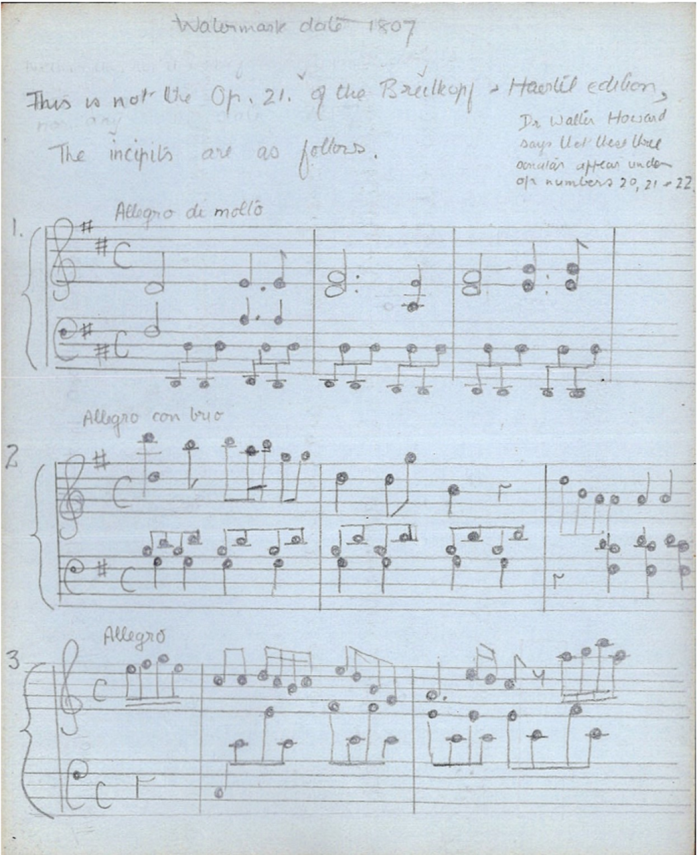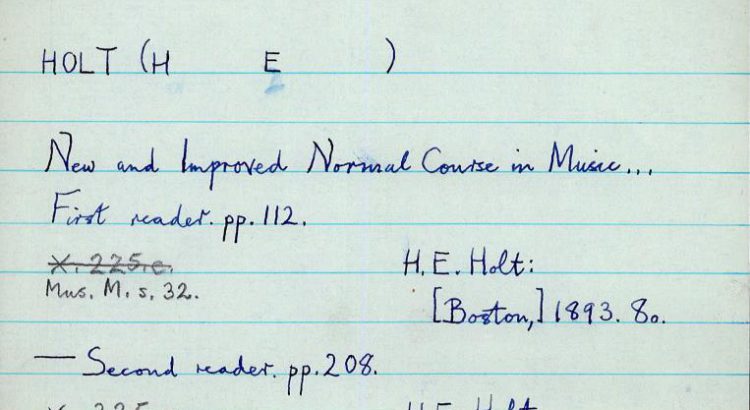In our previous two blogs of the series we gave you a general overview of the Music Retroconversion Project that the National Library is currently working on, followed by a discussion of some of the different cards we’ve been converting and the challenges these have posed. This final blog describes the benefits the project will provide to the National Library and, most importantly, to our readers.
This project is part of the National Library’s Hidden Collections efforts – “hidden collections” being collections that are not yet searchable in online catalogues. But the project has been even more revealing than just making the data available. As a legal deposit library, new items are coming into the library constantly, and it is impossible for the National Library’s single music librarian to know every item in the collection from the last 200 years. The search tools are important, but how can you know to search for something you didn’t know existed?
Every day, the editors review several hundred cards each, giving them an in-depth look at the music materials that the National Library holds. This means that sometimes they come across interesting pieces of music, or funny music titles, or items that might hold social significance. For example, did you know we have a piece of music called ‘The Quack, Quack, Quack Polka’? Or a German translation of a song from the musical ‘My Fair Lady’, called ‘Ach, Professor Higgins!’? Or a collection of piano and vocal music with songs from the Jewish Ghettos and Concentration Camps? Or a piece of music called ‘Tex, the Cowboy Santa Claus’? And we don’t just carry music scores, but also DVDs, LPs and Video Cassettes.
Beyond this, from a geeky cataloguing perspective, sometimes cards are interesting in themselves. There is always great excitement every time some music notation, called an incipit, is found on the card itself.

The final online catalogue will be really useful for a variety of purposes, that were more difficult in the card catalogue. The ability to easily search by date or decade will make historical analysis easier and will be useful for those searching for playlists for life (the dementia therapy that plays music from the listener’s past). It will also be possible to easily search for specific composers or publishers, which will be particularly helpful with Scottish heritage research, although searching for other aspects of social history and themes will now be more possible.
At the time of writing this, 94.4% of the cards have been transcribed into our project database, and 32% have been reviewed by our in-house editors. Meanwhile, sandbox trials are underway to test the transfer of the catalogue records across to the public online catalogue. It is exciting that this project that has been in the works for several years now is so close to completion. And we are delighted that the public will now have better and quicker access to our music collections than ever before.
